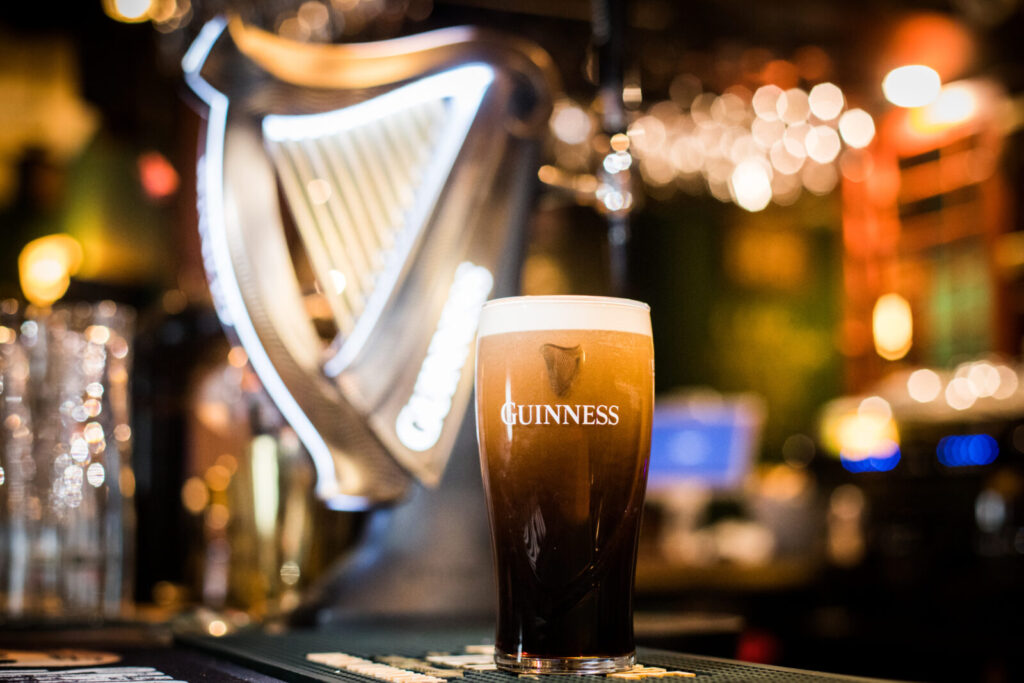Brief • 3 min Read
In The Harris Poll Tracker (Week 83) fielded September 24th to 26th, 2021 among 2,097 U.S. Adults, we look at the misalignment of Americans’ COVID fears, what Americans know and think about monoclonal antibody treatments, if Americans think the pandemic will ever end, a reflection on mental well-being and work, and what Americans think about automation at drive-thrus.
As a public service, our team has curated key insights to help leaders navigate COVID-19. Full survey results, tables, and weekly summaries can be accessed for free at The Harris Poll COVID-19 Portal. We will continue to actively field on a regular cadence to track the shifts in sentiment and behaviors as the news and guidelines evolve.
1. The Misalignment of COVID Fears: CDC-Harris Poll
In our new survey with our partners at the CDC, we found that vaccinated Americans are more worried about contracting COVID than the unvaccinated. Shared exclusively with our friends at Axios, here’s what else we found:
- More than half (51%) of Americans said they think breakthrough cases are common, including nearly seven in 10 (68%) of the unvaccinated, but just (44%) of vaccinated Americans.
- Although breakthrough cases are rare, and expected, still (60%) of unvaccinated Americans say they think breakthrough cases prove the existing coronavirus vaccines aren’t effective, compared to only a quarter (26%) of all Americans.
- By the numbers: Among vaccinated Americans, three in four (75%) said that if they were to get a breakthrough case, they’d be concerned about spreading the virus and just over half (53%) said they’d be concerned about dying – which is extremely unlikely among the vaccinated.
- Just one in 10 (12%) of vaccinated Americans said they’re living as they did pre-pandemic, while (49%) said they’re taking some precautions to avoid infection and (39%) said breakthrough cases are too big of a risk so they’re taking every precaution they can.
Takeaway: The science says that the unvaccinated have much more to fear, and are largely driving the current surge of hospitalizations and deaths but ironically, the people who are most worried are generally the ones with the least to fear.
2. Shaken, Not Stirred: Monoclonal Antibody Cocktails
As hospitals across the country are overwhelmed by COVID cases, one bright spot for patients has been monoclonal antibody treatment “cocktails” and demand is soaring. What do Americans think about this treatment?
- Among the half (50%) of Americans aware of monoclonal antibody treatments , two-thirds (66%) say they would trust the antibody cocktail to protect them from COVID, including (73%) of vaccinated and (41%) of unvaccinated Americans.
- Half (51%) of Americans that say they trust the antibody treatment cite it’s proven to be effective; (54%) of vaccinated and (40%) of unvaccinated Americans agree.
- One reason unvaccinated Americans are willing to receive the antibody treatment is because the government isn’t forcing them to take it like the vaccines (37%).
- When it comes to prioritization for these limited treatments, nearly half (47%) say the antibody treatment should be given on a first come, first serve basis – regardless of vaccination status. One-third (31%) say vaccinated Americans should be given priority and (22%) say unvaccinated patients should come first.
- The New York Times looks at how unvaccinated patients, sick with COVID, turned to these antibody treatments after shunning the vaccine.
Takeaway: Unvaccinated Americans’ willingness and trust in these antibody treatments stems from a mixture of the lack of stigmatization as seen with vaccines, as well as personal stories of patients improving after receiving the IV – both of which are largely the results of misinformation about COVID vaccines.
3. Do We Need to Learn How to Live With COVID?
In our latest COVID Tracker survey in partnership with the CDC, we gauged how long Americans are prepared to live with COVID in some form – and when they expect it will be over. Here is what we learned:
- The outlook: A third (32%) of Americans expect the pandemic to go on indefinitely, while (44%) say we’ll be living with some form of the virus for at least the next two years. A quarter (24%) say it’ll be more than two years, but will end eventually.
- The impact: One-fifth (21%) expect to take precautions indefinitely, but just over 1 in 10 (14%) say they’ve already stopped taking precautions – including (9%) of vaccinated and (28%) of unvaccinated Americans.
- The sentiment: Over a third (36%) say COVID will become the new normal, including regular booster shots and the occasional outbreak. Vaccinated Americans (44%) are more likely to agree than unvaccinated Americans (24%).
- The division: Three-fifths (63%) say that they are frustrated because “we wouldn’t be where we are today if people would just get vaccinated.” Most (78%) vaccinated Americans concur, compared to just (25%) of unvaccinated.
- The Atlantic explains why we can’t avoid the virus for the rest of our lives, but we can minimize its impact.
Takeaway: The end of the pandemic is a moving target and no one knows where we will be in 10 – or even 2 – years from now. However, Americans don’t see a COVID-free life anytime soon as most are prepared to live with the virus in some form for the foreseeable future, which will have a long-term impact on our spending habits, travel plans, and work lives.
4. From the Great Resignation to the Great Reflection: Talkspace-Harris Poll
The Harris Poll has partnered with Talkspace, a leading online behavioral healthcare company, on a nationwide survey that explores current employee attitudes toward mental well-being and work. Read more from the Employee Stress Check 2021 Report.
- Four in 10 (41%) of all American employees are likely to consider a job change to resolve stress.
- Two-thirds of employees (67%) who are considering leaving their job agree thattheir employer has not followed through on early pandemic promises to focus on employee mental health.
- Although half (52%) of all employees report burnout, less than (20%) of them are using the company benefits they believe are “most helpful” for mental health. This signals that employees may not be fully aware of what’s available, or may not feel comfortable taking advantage of certain benefits.
- Nearly (60%) of employees believe that supportive management can improve retention.
Takeaway: “This new study suggests that employee well-being is shaped by many varying experiences — from managerial relationships to workplace policies, and available mental health and wellbeing resources,” said Dr. Varun Choudhary, MD, MA, DFAPA, Chief Medical Officer of Talkspace. “It’s critical that employers pay attention to pain points and implement effective solutions that counteract chronic stress, enhance workplace culture and improve retention.”
5. Many QSR Customers Not Happy With Drive-Thrus, Would Welcome Automation: Xenial-Harris Poll
In our survey in partnership with Xenial we found that more than half of Americans who visited quick service restaurants (QSRs) in the last six months have had an unpleasant drive-thru experience. Based on our findings, here’s what QSRs can focus on to help alleviate the pressures placed on drive-thrus driven by COVID:
- Among the (65%) of Americans who had an unpleasant drive-thru experience in the last 6 months, a third (36%) listed the poor attitude or behavior of drive-thru staff as to why.
- Nearly half who visit QSRs (49%) are willing to eliminate all human interaction when ordering and receiving their fast-food, with younger Americans are more likely than their older counterparts to say this (62% for those ages 18-44).
- Reasons for wanting to eliminate human interaction varies: (42%) believe automated systems would be faster than humans, one in three (32%) said they prefer not to interact with people unless it’s necessary, and nearly one in five (19%) say they believe automated systems would be more friendly than humans.
Takeaway: “Labor shortages are highlighting the fact that automation isn’t necessarily about replacing existing workers,” Chris Siefken, head of technology for Xenial said. “It’s about making quick service restaurant jobs easier so existing workers have the bandwidth to provide excellent customer service at those points where people are needed. Automation can improve the overall employee experience, which can lead to better retention.”
Subscribe for more Insights
Subscribe to our newsletter for the latest trends in business, politics, culture, and more.
Download the Data
This survey was conducted online within the U.S. by The Harris Poll from September 24 to 26, among a nationally representative sample of 2,097 U.S. adults.
Download
Subscribe for more Insights
Subscribe to our newsletter for the latest trends in business, politics, culture, and more.
Download the Data
This survey was conducted online within the U.S. by The Harris Poll from September 24 to 26, among a nationally representative sample of 2,097 U.S. adults.
DownloadRelated Content








